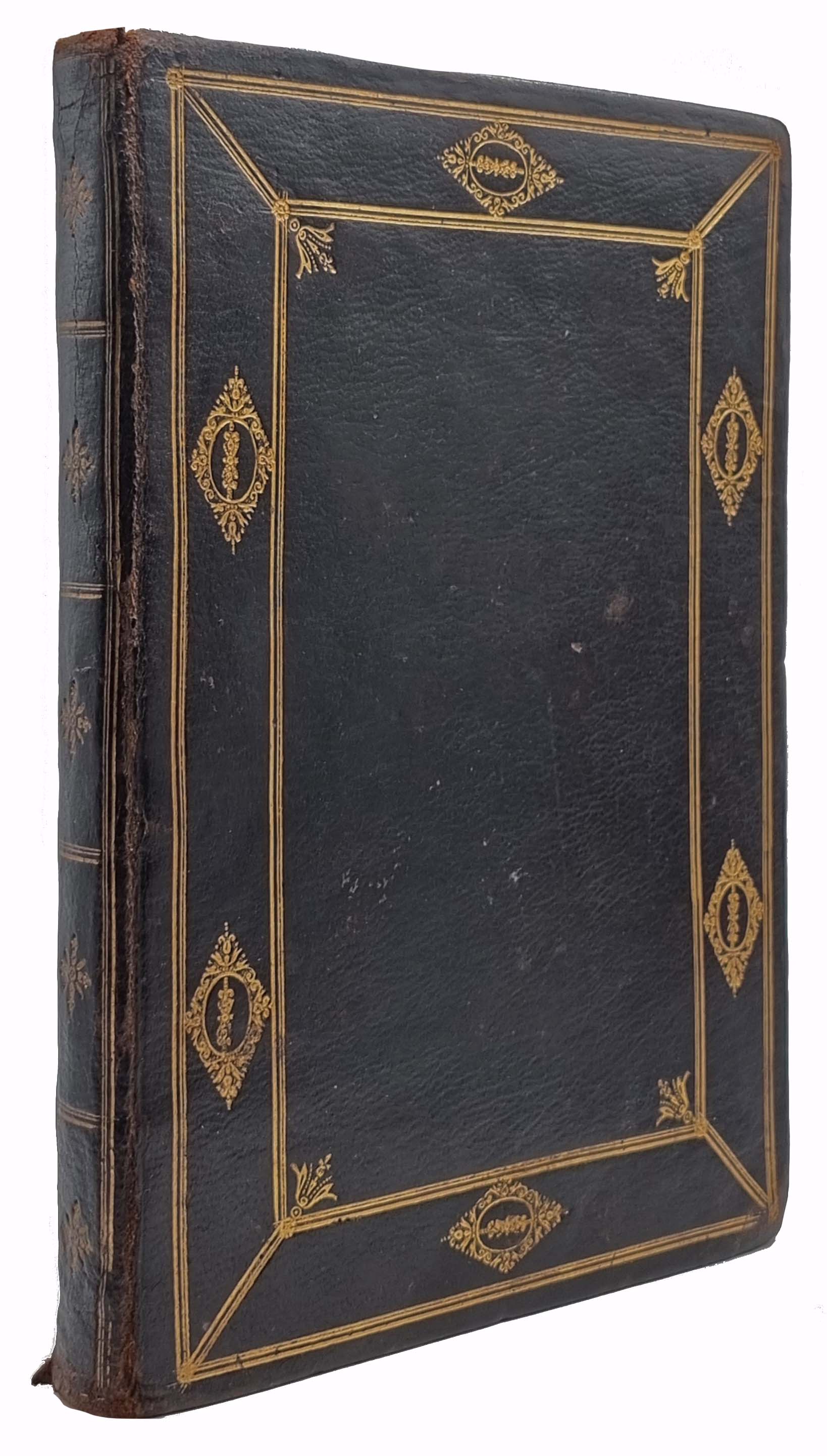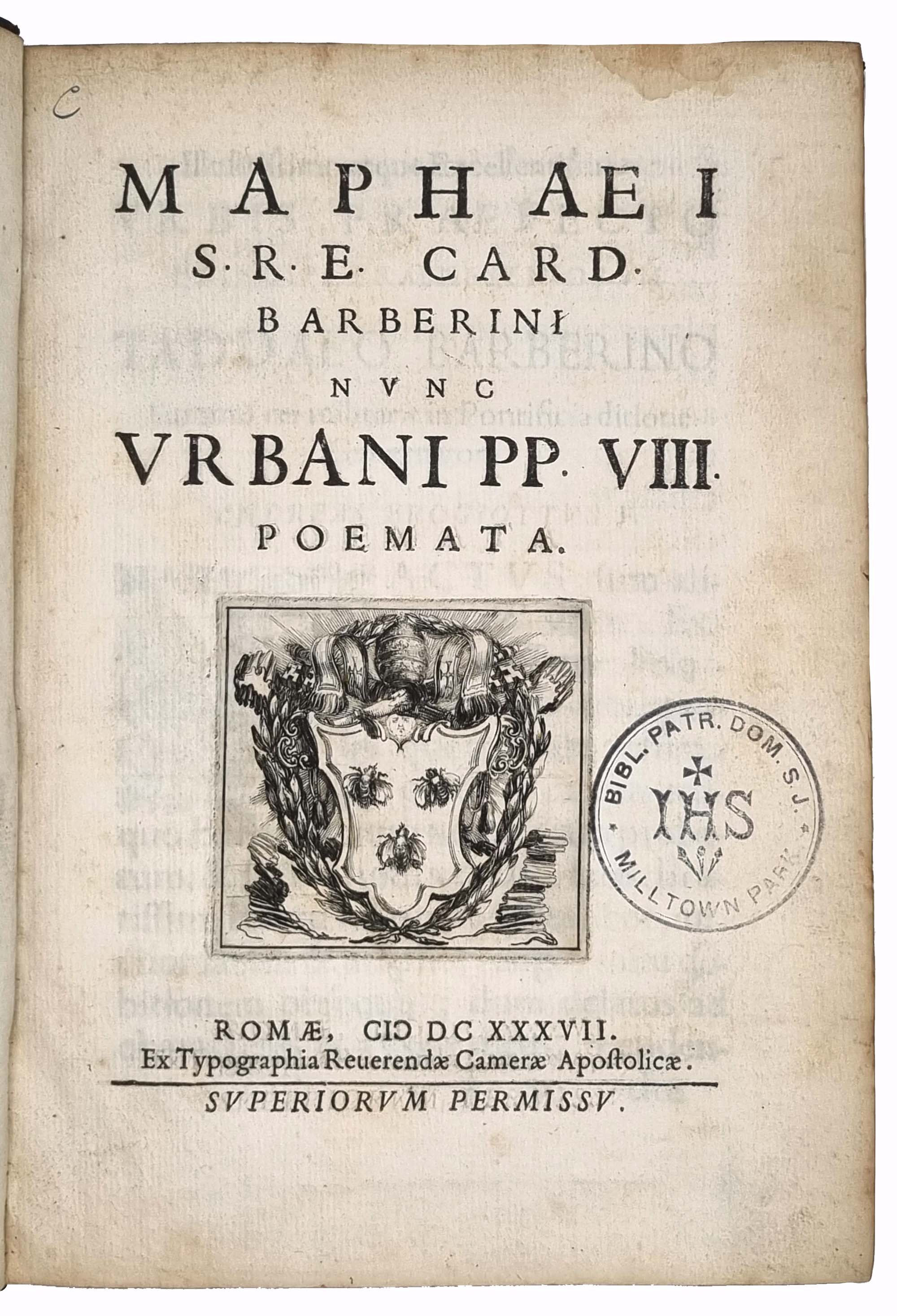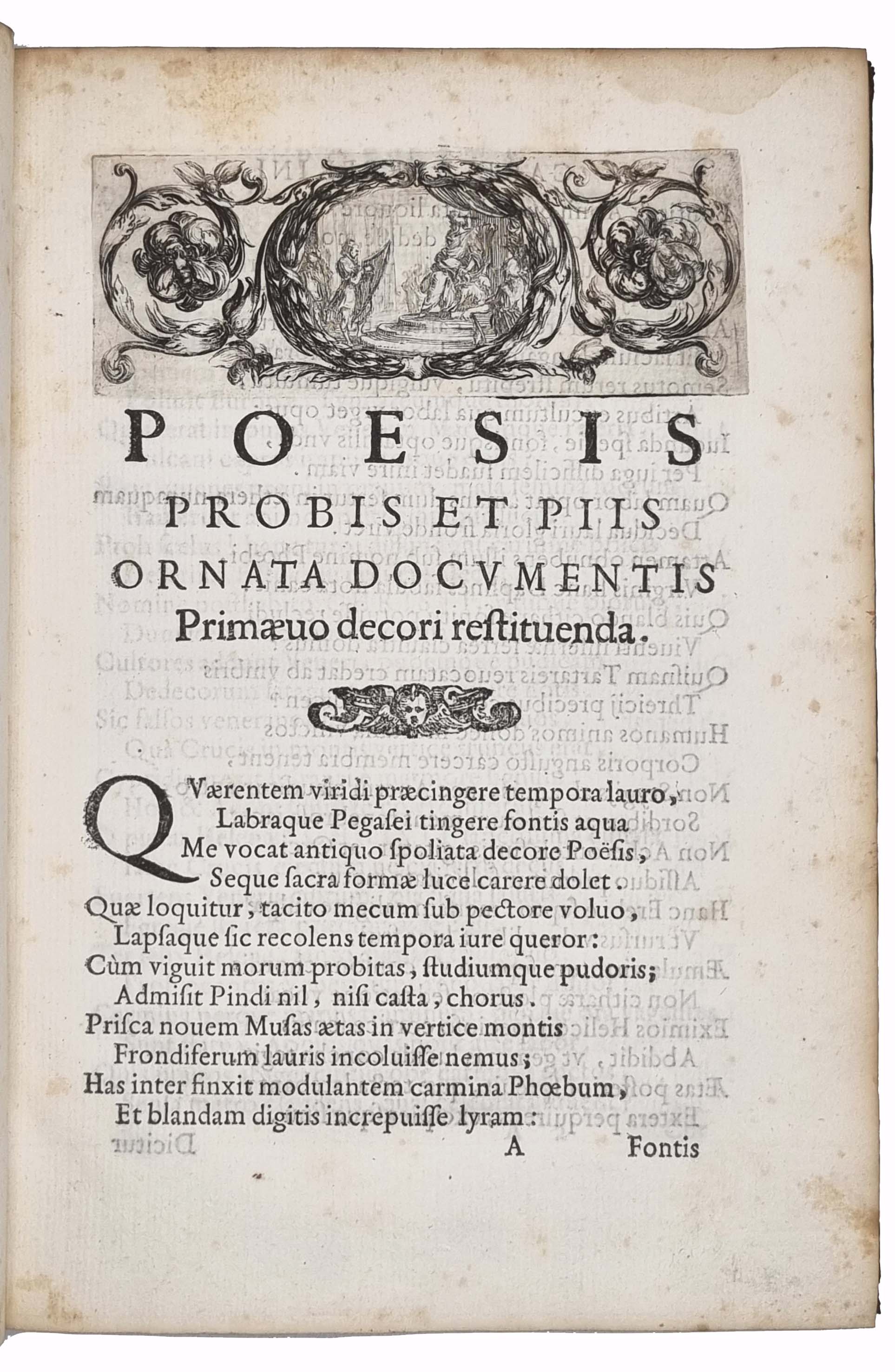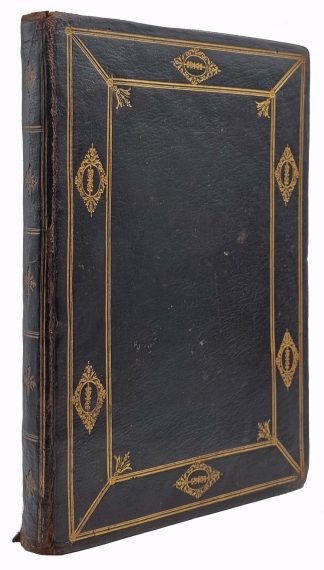BARBERINI, Maffeo [POPE URBAN VIII]
Poemata.
Rome, ex typographia Reverendae Camerae Apostolicae, 1637£3,500.00
4to. pp. (xx) 231 (i). Roman letter, occasional Italic and Greek. Engraved arms of Maffeo Barberini to t-p; two engraved headpieces (David playing the harp and another surrounded by a floral branch with bees); four engraved tailpieces (two with sun surrounded by wreath with bees, two with rising sun and motto ‘ALIVSQ ET IDEM’); decorated woodcut initials and tailpieces. Light browning to outer margin of t-p and last, slight foxing, small faint water stain to upper margin of first few ll., very light browning to a few ll., wear to a couple of letters on one leaf. A very good, crisp, well-margined copy in contemporary Roman olive morocco, gilt to a triple-ruled panel design, small gilt rosettes to corners, outer border with gilt rhombus-shaped arabesques including small fleurons and central oval with a vertical row of small fleurons, centre panel with large gilt fleurons to each corner, edges sprinkled red.
Spine in five compartments, gilt triple-ruled border and large gilt fleuron to each, minor rubbing at head, foot and joints. Bookplates of William O’Brien to front pastedown and Milltown Park S.J. Library to fly, ‘C’ and Milltown Park stamp to t-p, the odd early annotation.
The beautifully gilt binding appears to borrow, with plainer intentions, the design and rhombus-shaped decorations on BL C108h12, produced c.1630s by the Rospigliosi bindery (i.e., Gregorio and Giovanni Andreoli) in Rome. Very good, crisp copy, in fine impression, of Maffeo Barberini’s ‘Poemata’. Born in Florence, Barberini (1568-1644) was educated by the Society of Jesus in Rome and earned a doctorate in law at Pisa. Thanks to his uncle, Pope Clement VIII, he was appointed papal legate at the French court. In 1623, he was elected Pope with the name of Urban VIII; during his pontificate, Galileo was called to Rome to disown his cosmological theories. A great patron of scholars and artists like Athanasius Kircher and Claude Lorraine, Barberini was himself a talented poet. First printed in Venice in 1628, ‘Poemata’ gathers his most important compositions in Latin and Greek, from biblical paraphrases to reflections on virtues and vices, poems addressed to scholarly friends and relatives, odes to saints and even musings elicited by the sight of beautiful statues. The collection blends the versatile erudition of late humanism, the jovial nature of ‘alba amicorum’ and the darker undertones of international politics. Three poems are devoted to the seminal studies on the ‘marvels’ of the animal and botanical world written by Ulisse Aldrovandi, ‘guardian of Nature’. Another celebrates the saintly death of the Catholic Mary Queen of Scots, beheaded in 1587; the darkness which has covered the earth is lit up not by the burning torches at her funeral but by the stars in the heavens. ‘De sole et ape’ provides a key to the typographical iconography of the volume, decorated with shining suns and the bees of the Barberini. The explanation of the emblematic motifs is that bees’ wax can survive the heat of fire, be used to make torches and, like the sun, can chase darkness away. This edition—the second to be printed by the ‘Typographia Camerae Apostolicae’ which had retained the privilege since 1631—was advertised as revised and re-set with new and more elegant types.
Only Harvard and BYU copies recorded in the US.BL STC It. C17, p. 927. Not in Brunet.In stock





